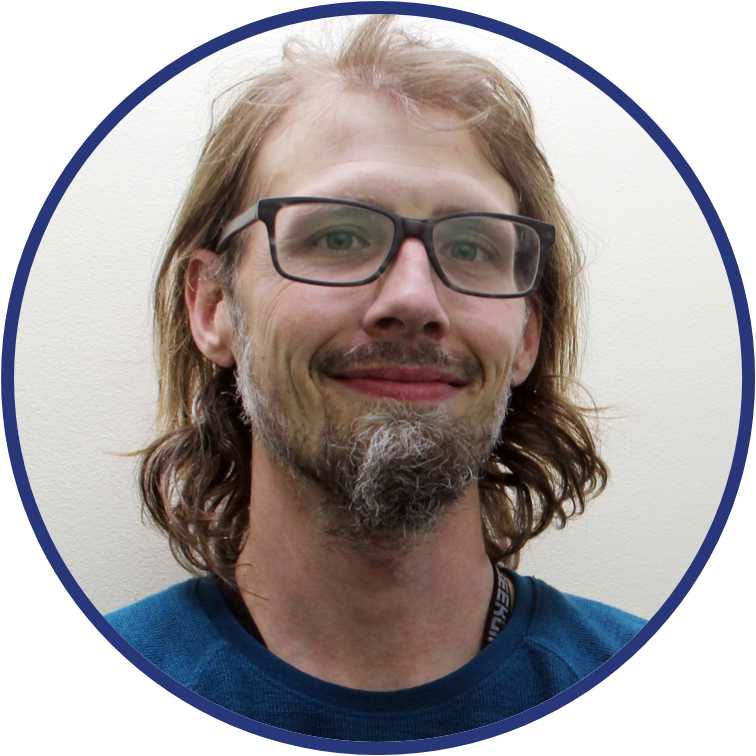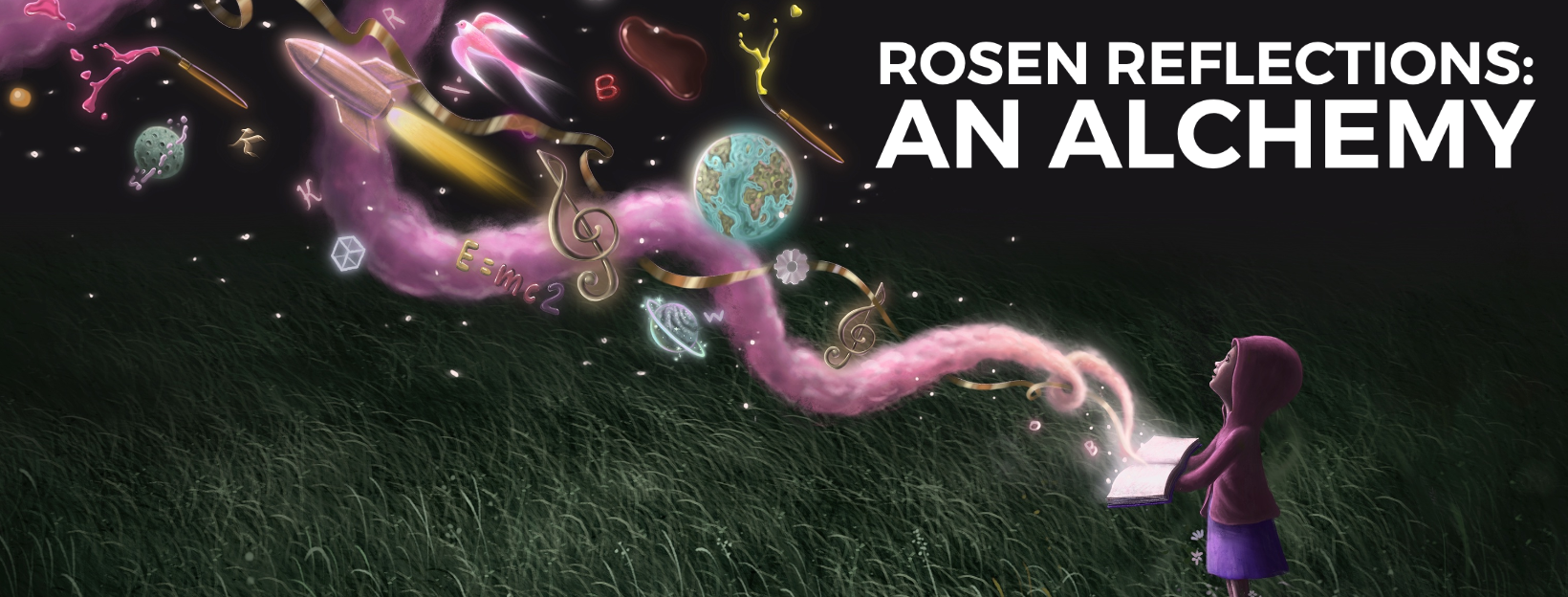 |
By Sam Sanders, Assistant Teacher for Rosen Family Preschool |
The room is long, paneled with faux wood popular in the 70’s, the passage into the kitchen protected by batwing doors. The light could easily be early morning or late afternoon, slanting through the rectangular window at the opposite end, moving across turning pages of colorful violence. On these pages are forms frozen in cartoon combat, of robots transforming into vehicular mayhem. These grainy pages are torn and stained with use, enveloped by a glossy but tattered cover that sticks to my thighs. I am stuck to my father, my head against his armpit. We are reading this book, Go-Bots, together. My father conjured meaning with his fingers from the black letters marching along the bottom of the page like so many ants, but he also used more than was shown in these words, painting colour and action in midair, a car crash a crumbling of digits, explosions spreading around in a nimbus of fingers.
I was undergoing an alchemy, the fusion of two languages building a storm of inextricable synapses; I was learning two languages at the same time, learning how to think in either. It was a gift from my parents who came from a world where they were poked, prodded, slapped through phonetics without understanding what sound meant. They drew in silence through their ears and regurgitated noise that made specialists happy, a success, despite an accent that marked them as different. The world is not kind to those who have to try harder, and my parents chose to be kind. They chose to view me as a human being, the product of their experiences, and wanted to give me what their parents didn’t know to give.
As soon as I was pulled from the womb, fingershapes twirled in the air, faces dancing along, and I was given language from birth. It is not something many deaf children get. They are born to families who fear this difference will diminish the quality of life, families who are given advice by medical “experts” who practice audism, encourage medical experimentation on children, and refuse to listen to the community. These parents, in a fearful bid to “normalize” their child, then follow this advice to focus on speech therapy and technological adaptation instead of treating the child as a whole person. When a child’s impression of oneself is of failure or as broken, what does that bode for the child’s future?
Language is the framework in which we structure our internal and consensual reality. It informs our decisions, our emotional intelligence, our relationships with the rest of the world. If language is lacking or not present during the vital developmental milestones of ages 0 – 5, it creates twilight beings who have to stumble through life because their internal structure of language is a house of ruin. As a result, there grows a group of people who are experiencing lifelong trauma, are considered unintelligent, a burden on an ableist society, and not worthy of true equity. This is why I want to teach. I know what I have and I know this is possible for all of us to do the right thing by our human brothers and sisters.
Sign Language is found all over the world and is a bona fide language. It has grammatical structure, linguistic rules, and evolves over time within regional differences. The language of the dominant culture, often based on geographical region, also has grammatical structure, linguistic rules, and evolves over time within regional differences. We have American Sign Language and Lengua de Señas Mexicana (LSM) in North America, and Langue des Signes Française (LSF) and Deutsche Gebärdensprache (DGS) in Europe, to name a few. What common ground does each culture share, with its obvious language differences? The written word, which is used by either culture when transmitting information that is not dependent on speech or sign language. Mastery of this written word is essential in navigating the world.
When a child is born with hearing, they are exposed to words from the very beginning. They don’t only hear the words… they can hear that smile, the dripping sadness of your tears, or the anger in your words. This they understand first, before meaning, because our bodies carry the tools we use to attach meaning to language: emotions. Shades of meaning shift with emotions, and this is learned through constant dialogue and attention from caretakers. When a child, perhaps a Deaf child to parents who chose not to sign, doesn’t receive this, they grow up into a world half-understood. A limbo. They often have limited social cues from which to navigate with, often struggling with basic life skills requiring comprehension and usage of the dominant language to the point where their quality of life plummets. They often discover Deaf Culture later in life, and find belonging. But even then, the damage is done.
Because reading was important to my parents, it became important to me. It was, and still is, a source of refuge, learning, and pleasure. It was not only this; I also went to a school of my peers. I was immersed in my language and culture, surrounded by people of all ages who were language models. I observed how my community interacted and unwittingly incorporated cultural vectors that further defined my identity. I learned things in my first language, and how to code switch between English and ASL as needed. This happened because I was born to Deaf parents who recognized the value of the written word and cultural immersion. Many of my peers were born to hearing people without cultural guidance and were not as fortunate.
Language deprivation is the bane of Deaf Culture, a product of medical experimentation, ableist attitudes, and the idea of a normal that is impossible in practice. We are fighting to regain our footing, to earn the respect our perspective of reality deserves, for the idea that each and every person has something to contribute, regardless of their socioeconomic status, disability, or culture. Deaf people just want to live like you, with respect and love, with pain and suffering that comes from Life, not the culturally uninformed choices made by people in our infancy. Deaf people want you to listen to us, because this experience belongs to us only. We are the real experts of our suffering. We are the only group whose culture is inextricable from its language. If there are no Deaf people, there is no sign language.
But I didn’t know all this then, my thigh sticking to this much-loved book, the smell and warmth of my father washing over me as his hands told tales of robots and cars and love and revenge. I knew this: I was loved and I was safe to be true to myself.
Rosen Family Preschool is a bilingual classroom featuring American Sign Language and English. Visit our webpage to learn more about our services, see if your child would be a good fit, and sign up for future updates.

One comment on “Rosen Reflections: An Alchemy”
Dear Sam. This is a stunning piece of writing. It offered me an elegant perspective of your experiences and an appreciation for the fierce passion you have for your work with children. I am grateful to have become a part of this experience.